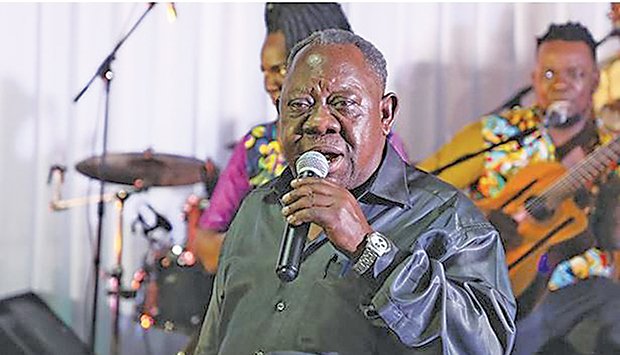José Carlos Lamartine Salvador dos Santos Costa is an Angolan musician, diplomat, and statesman who played an essential role in shaping contemporary music in Angola.
Lamartine was born in the city of Benguela in 1943. At age ten, Carlos moved with his father and two sisters to Luanda— the capital city— in one of the city’s shantytowns called Bairro Indígena. Though violence and racism encompassed his experiences in Catholic school, Carlos’s adolescence also saw the development of his passion for music.
Lamartine’s nephew introduced Carlos to drumming, and he became involved with local music in Luanda by founding the group Os Kissweyas. Like many music groups and musicians of Luanda spanning the end of the 1950s and into the 1960s, Os Kissweyas and Lamartine found themselves during a momentous and opportune time, as Angolan popular music transitioned into what is characterized as a golden age.
While Lamartine worked to survive, his music paid for itself. In the middle of the Angolan War of Independence during the 1960s to mid-1970s, Lamartine performed at local Luandan clubs and festivals, competing amongst fellow musicians for the sound of the night. He could also be found listening to elders playing instruments and singing at Saturday family gatherings. Music by one of the most famous music groups of which he sang— Os Águias Reais— could be heard on radio network broadcasts in the city.
Lamartine was not directly involved in the Angolan War of Independence until aligning with the Peoples’ Movement for the Liberation of Angola (MLPA) in 1974— the political faction leading towards Angolan independence in 1975. Many of Lamartine’s recorded songs reflect nationalist sentiments of Angola’s independence. Aside from his contribution to Angola’s national anthem, some of Carlos’s most noted songs voice and count solidarity, cultural empowerment, and freedom in their beats, rhythms, and melodies.
Lamartine’s presence in music waned for a twenty-year period as Carlos labored in cultural projects, performing the role of State Secretary of Culture in the late 1980s, the National Director of Cultural Action in the mid-1990s, and as cultural attaché of the Angolan embassy in Brazil during the 2000s. Carlos reemerged on the music scene as early as 1996 with the release of his first CD. Additional album releases and headlining performances followed. At 80 years old, Carlos published his book, “Being a poet in harmonies and silence.”
Carlos Lamartine’s music contributed to Angolan nationalist sentiment in the latter quarter of the twentieth century and is a symbol of political mobilization even today. Lamartine is best known for co-writing Avante Angola—the national anthem of Angola— and for popularizing the genre known as semba.

